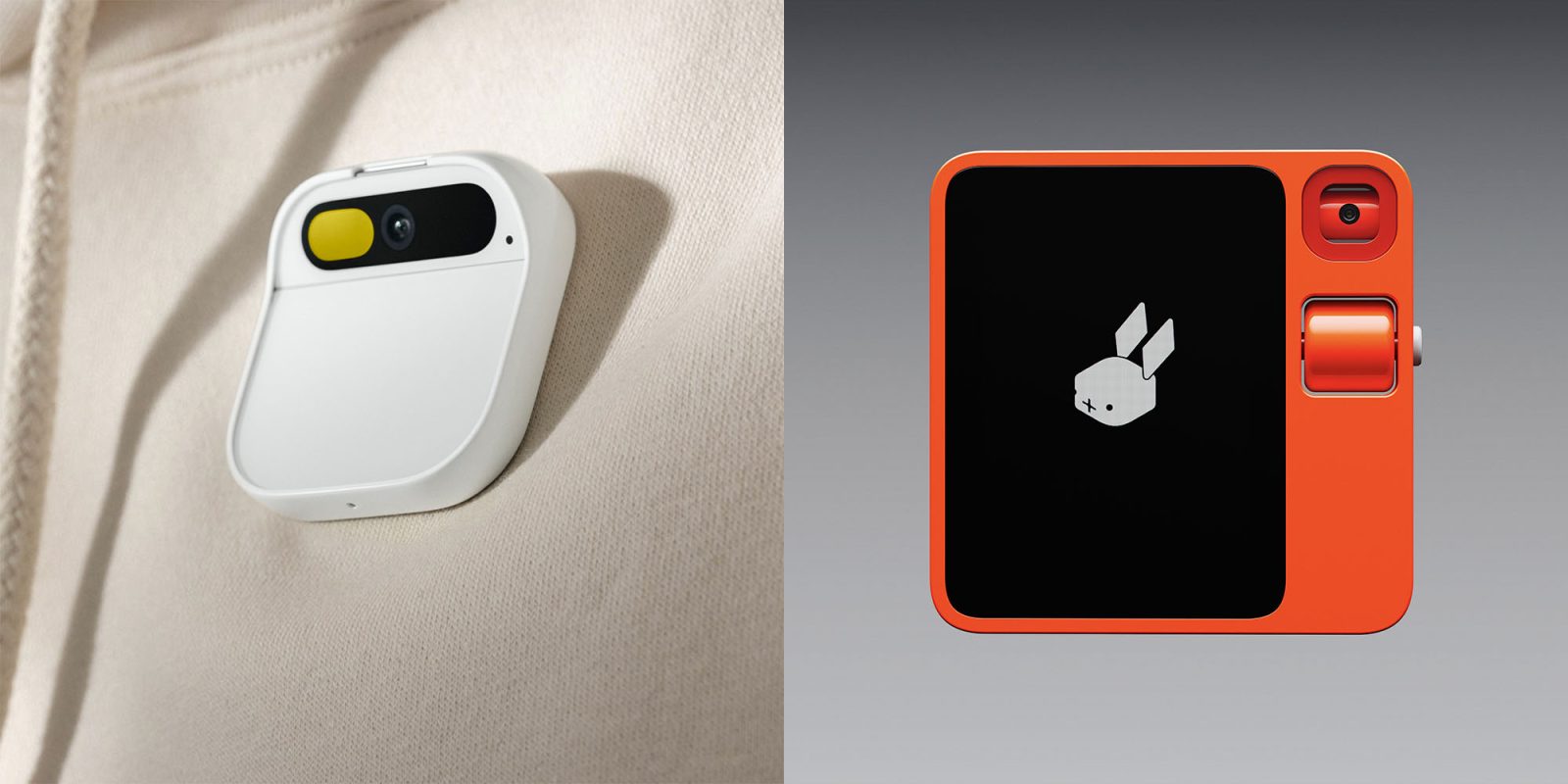
For some reason which utterly eludes me, 2024 seems to be the year of AI hardware. We’ve had the Humane AI Pin, the Rabbit R1, and even former Apple design chief Jony Ive reportedly seeking a billion-dollar bet for his own attempt.
Reviews of Humane were brutal, with those who tried it as unimpressed by its performance as they were bemused as to its purpose – and the Rabbit R1 isn’t faring too much better, with Marques Brownlee describing it as “barely reviewable” …
Humane AI Pin
Let’s start with a few sample reviews of the Humane AI Pin.
Engadget: “Not only is the Humane AI Pin slow, finicky and barely even smart, using it made me look pretty dumb. In a few days of testing, I went from being excited to show it off to my friends to not having any reason to wear it.”
The Verge: “For every successful interaction with the AI Pin, I’ve had three or four unsuccessful ones […] Using the AI Pin feels like wishing on a star: you just close your eyes and hope for the best. Most of the time, nothing happens […] The AI Pin doesn’t work. I don’t know how else to say it.”
Wired: “Whenever I went out with it, I found myself barely using it. I’d ask it maybe three to four things, partly just to try a feature out. I’d then get disappointed with the results […] There’s nothing here that makes me want to use it over my smartphone.”
And I guess there isn’t anyone reading this who hasn’t watched Marques Brownlee’s review, titled The Worst Product I’ve Ever Reviewed… For Now.
Rabbit R1
The Rabbit R1 fares a little better, in part because it seems to work somewhat more reliably, in part due to a much lower price leading to lower expectations. But still, reviews are not exactly glowing.
CNET: “If you’re thinking about buying the R1, do it because you’re curious about the future and don’t mind gambling $200 on it. But for most people, my advice is to just stick with your phone.”
Digital Trends: “While I love its design, unapologetically orange color, and the bouncing rabbit on its display, almost everything else about the R1 has been, to put it nicely, a mess […] Almost every time I try to use the R1 for something, I get frustrated by its half-baked design and I reach for my phone instead.”
The Verge: “Almost immediately, though, I started running into stuff the R1 just can’t do. It can’t send emails or make spreadsheets, though Lyu has been demoing both for months. Rabbithole is woefully unfinished, too, to the point I was trying to tap around on my phone and it was instead moving a cursor around a half-second after every tap. That’s a good reminder that the whole thing is running on a virtual machine storing all your apps and credentials, which still gives me security-related pause.”
Brownlee titled his review Barely Reviewable, and when I said to a colleague that I can’t understand why either of these devices are hardware rather than apps, he pointed me to Dave2D making the same point beautifully:
Probably just move the camera on top of the bezel – there’s a little bit of room there – and then maybe add some hardware volume buttons […] You might as well extend the screen, because you know you got a little bit of room down there, and– Oh look, it’s a phone, like the thing you already have in your pocket.
AI hardware is like inventing the iPod after the iPhone
I can still remember my excitement at buying the original iPod. It wasn’t my first mp3 player, but it was absolutely the best. The idea of having a huge amount of music on me wherever I went was absolutely fantastic. A later, higher-capacity model turned that into having all my music with me, all the time. The iPod was one of the greatest inventions in the world … at the time.
But much as I still love that concept, to me it no longer makes sense to carry a dedicated chunk of hardware just to play all the music I own, when I can instead use the device which is already in my pocket to play (almost) all the music in the world, whether or not I own it.
It’s the same thing with AI hardware today. If smartphones didn’t exist, these devices would be enormously exciting, and I’d want one, despite their current limitations.
Top comment by JR
I can't blame them for trying. No one is going to unseat Apple and Android by competing directly on the phone front. AI is hot, so the phone makers have to shoehorn AI deeply into legacy products. These folks want to go the opposite route and go AI first and, over time, add in more and more until these can eventually compete directly with phones. Its really the best bet if you want to try to disrupt the smartphone market. Will it work.... eh probably not.
But smartphones do exist, and I can’t see a single reason why these devices aren’t simply apps.
That will be even more the case once iOS 18 is out, and Apple gets into the generative AI game. Like these devices, I’m sure the first version of iOS 18 Siri will be far from perfect – but given I’m going to get imperfect AI either way, I’ll take the option which is free and doesn’t involve carrying an extra device.
Do you see any reason for dedicated AI hardware to exist? Please share your thoughts in the comments.
FTC: We use income earning auto affiliate links. More.





Comments